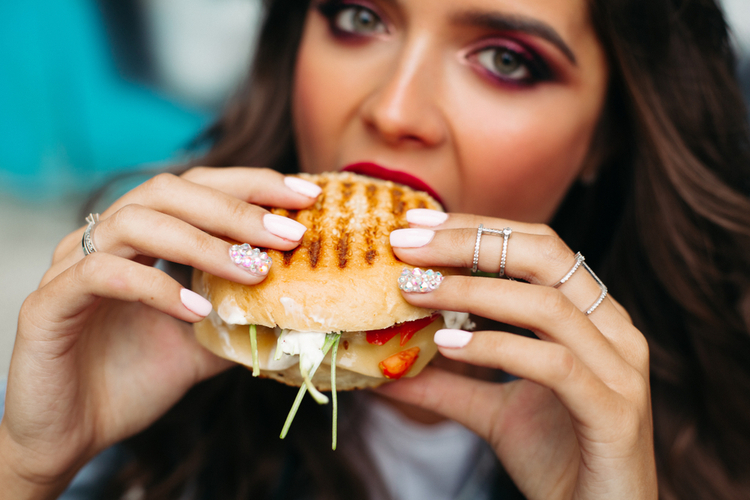Have you ever thought about whether you have a healthy relationship with food? It may sound like a weird thing to think about, but it’s important. There are many people who struggle to have a healthy relationship with food and dieting, and it’s often something that lasts their whole lives.
Imagine if you were able to look at eating as a way to give your body fuel, like you could do for your car. Once you hit “E,” you’d be able to fill yourself up without overdoing it or else your tank would overflow, and you’d never, ever dream of using it as a treat.
Instead, for a lot of us, eating is anything but simple. While eating starts out as a biological necessity, it quickly becomes influences with different emotions, ideas, memories, and rituals. Food starts to become a comfort, punishment, or celebration. And depending on the day and our mood, there is a risk of overeating, undereating, or not making the best choices in what we eat.
It may be time for you to reexamine your relationship with food. Here are a few common-sense steps to help get there.
Reconnect with your hunger
There are many things that motivate us to eat. When we wake up, that means breakfast. It’s midnight, so why not eat a snack? Some at work brought a cake for someone’s birthday, it would be rude not to eat a slice. We also suppress our appetite for many of reasons. We get busy with work, we’re sad about something, or we’re too excited about an upcoming event.
Eat when you’re hungry
While it’s obvious to eat when you’re hungry, but when you think about it, how many times did you eat when you weren’t hungry? It’s best to eat when you first get hungry and not wait until you’re starving. When you’re super hungry, it’s more than likely that you will eat with your eyes and serve yourself too much food. That’s why it’s suggested that your avoid grocery shopping when you’re hungry. It’s more than likely that you’ll bypass the produce section and head straight to the high-calorie items.
When you let yourself get too hungry, chances are, you’re going to eat too fast and not paying attention to what you are consuming. In fact, one of the biggest predictors of overeating is letting yourself get too hungry in the first place.
Feed your body what it is craving.
When you’re on a diet, the diet is telling you what to eat. And when you’re on a binge, it’s so easy to eat whatever is convenient or go all out on foods you’re not supposed to be eating on your diet. When you develop a different relationship with food, it means taking a step away from those patterns. You should, instead, give your body what it is craving. While whatever was convenient or go all out on foods forbidden by her then-diet. Developing a better relationship with food means that you need to stop those patterns. Also, if you’re giving your body what it is craving, let’s say a piece of chocolate cake, you’re more like to not binge eat it if you stop denying your body the food. Denying yourself certain foods will cause you to feel guilty or judged, so doing it is very counterproductive.
Don’t use food as a reward or a punishment.
Using food as a reward is a common thing to do, which isn’t surprising when, as children, we learn that we can get snacks when we do something good and parties mean that there was going to be cake. But the good thing about being an adult is that we can determine our own associations when it comes to food. It’s your turn to set your own rules now.
You’ll be surprised by how making peace with food affected other areas of my life. As you learn how to listen to yourself, you’ll learn how to be more loving to yourself.

